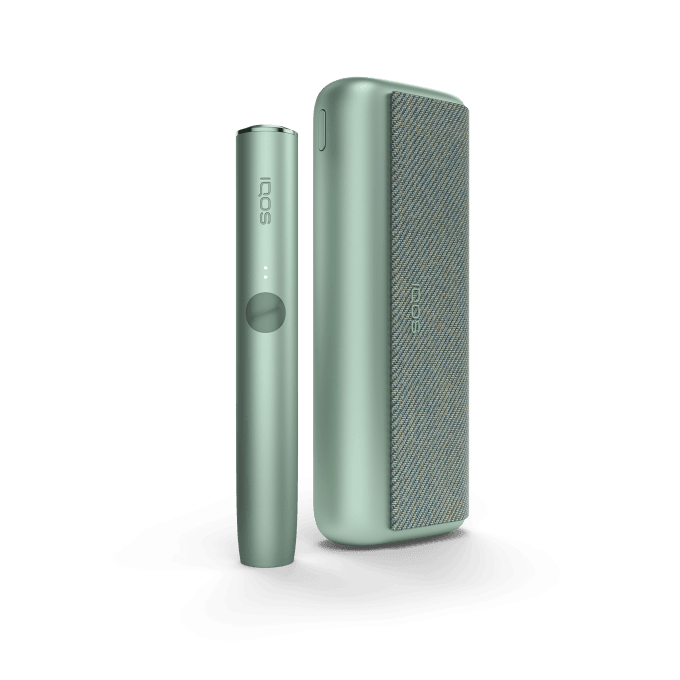
Philip Morris International's Chief Executive Officer Jacek Olczak (right) with Tommaso Di Giovanni, PMI's VP for International Communications and Engagement
NEUCHATEL, SWITZERLAND – IQOS is now the top tobacco brand of Philip Morris International surpassing the iconic Marlboro in net revenues.
Philip Morris International’s flagship heated tobacco product IQOS has surpassed Marlboro’s global net revenue barely a decade since it was launched in 2014, underscoring the company’s commitment to moving away from cigarettes.
“For the first time in history, the smoke-free product surpassed the cigarette combustible product,” PMI Chief Executive Officer Jacek Olczak said at the Technovation event held on October 9, 2024 in Neuchatel, Switzerland.
In 2014, PMI made a bold announcement to go smoke-free by replacing cigarettes with better alternatives as soon as possible. On the same year, the company introduce IQOS in Milan, Italy and Nagoya, Japan. IQOS is now present in 90 countries and is being used by 30.8 million individuals around the world.

IQOS Iluma
According to PMI’s latest integrated report, 38 percent of the company’s total net revenue came from its smoke-free business.
IQOS, PMI’s leading smoke-free product, uses a patented induction technology to heat real tobacco instead of burning it. Because it doesn't burn the tobacco, these products are smoke-free—producing a nicotine-containing aerosol that is fundamentally different from cigarette smoke. It has no smoke and has no ash.
“If you give the basic information to the consumers, explain the role of combustion as the main culprit in creating the harm of smoking, explain properly the role of nicotine. Consumers, well-informed consumers, smokers will make a choice,” Olczak said.
Olczak noted that PMI never treated IQOS as an addition to its existing business, but a replacement to its cigarettes, “because it doesn't make sense to keep on focusing on the product with all the negatives when you have a product which can deliver similar satisfaction from a consumer perspective, but then with a completely, completely different harm profile.”
“And therefore came all the switch with the massive reallocation of resources, you'll see that all of our R&D (research and development) we spent, which goes in several hundreds of millions of dollars per year, 99 percent is behind the new product,” he added.
Tommaso Di Giovani, PMI’s Vice President for International Communications and Engagement said during his presentation that PMI has invested more than US$12.5 billion and has employed over 1,500 engineers, scientists, technicians, and support staff for the continuous development of its smoke-free product line.
In its quest to provide better alternatives to the 1.1 billion smokers worldwide, Olczak recognized that people have different expectations towards alternative products, different usage and use patterns. “There is no one smokers persona. So our role is to continuously innovate.”
In the Philippines, PMI, through its local affiliate PMFTC Inc. introduced IQOS in 2020. It now carries the latest iteration, the IQOS Iluma and its consumable heat sticks TEREA. A more affordable brand in the heated tobacco product category, BONDS by IQOS and its consumable heat sticks BLENDS were launched in 2022. Meanwhile, ZYN, the oral nicotine pouch was made available in the country in 2023.
Di Giovanni emphasized, however, that to drive change towards much faster, different sectors of the society has a role to play.
“Governments have a role, NGOs has a role, everyone who speaks to the public has a role, physicians, health authorities, the academia. Whatever they say to the public can influence adoption, can influence decisions. The phase of change will depend on them.” He said, “governments have a particularly important role, because they can shape the rules of the game.”
Di Giovanni in an exclusive interview with visiting Filipino journalists cited the Philippines as a pioneer in terms of legislation with the passage of the Vape Law. “They (Philippines) actually set a pioneering framework which is unique in the region. The Philippines is the first in the region, a tribute to the visionary approach of the government,” he said, noting that the Philippines is a very promising market when it comes to those products.
Olczak, meanwhile, stressed that PMI will not be able to achieve its smoke-free vision in countries that ban smoke-free alternatives.
“Technically speaking, we will not be able in these countries to achieve smoke-free just because we are not allowed. Actually, cigarette sales decline much faster in countries which allowed any form, maybe not even all, but allowed in any shape or form, at least one or two alternatives to the smoke free product. Clearly, these countries will be on the forefront of reaping or yielding the public health benefit,” he said.
“If you want to have a drastic change from a harm reduction perspective, you should ban the cigarettes and allow the alternatives. But definitely not banning alternatives while allowing cigarettes,” Olczak said.